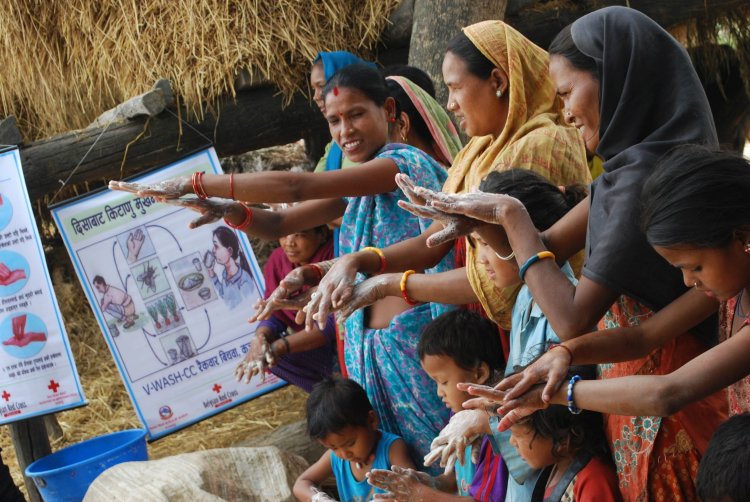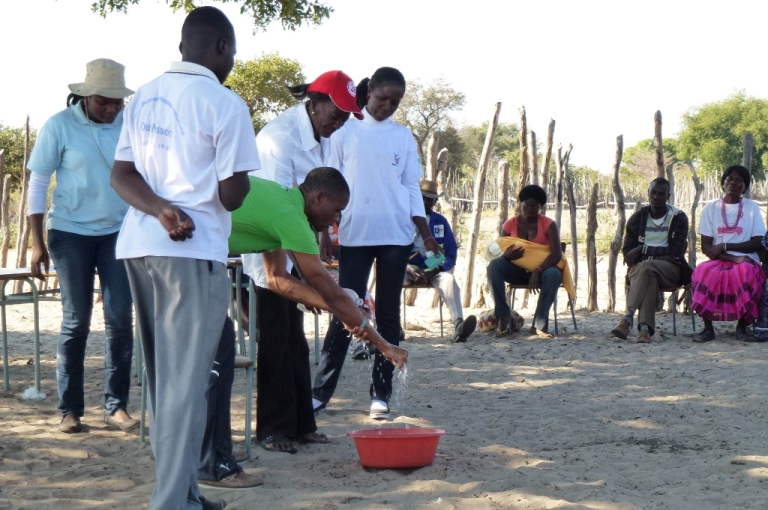Our systematic review on WASH behaviour change now available online!
22/05/17

Our mixed method systematic review has been published in the Campbell Library! With this news item we would like to give you an overview of the steps we took to come this far.
In September 2015 we initiated a mixed methods systematic review with co-funding from the International Initiative for Impact Evaluation (3ie) and the Water Supply and Sanitation Collaborative Council (WSSCC), and in collaboration with the Centre for Evidence-Based Healthcare of the Stellenbosch University.
The review aimed to assess the evidence for two questions: (1) how effective are different approaches to promote handwashing and sanitation behaviour change in low and middle income countries; and (2) what factors influence the implementation of these approaches?
In a first phase of the project we made an overview of existing systematic reviews, resulting in an evidence gap map (soon to be published in a separate publication) and finetuning our research questions. During this phase we also developed a draft Theory of Change (ToC) illustrating the hypothesized causal links, explaining how (elements of) handwashing and sanitation promotional approaches are expected to lead to the intended short-term, intermediate and longer-term outcomes, and how different factors could influence the implementation of the promotional approaches. In February 2016 we held a face-to-face meeting with an Advisory Group of practitioners and policy makers in Cape Town, resulting in an improved version of the ToC and a final formulation of our research questions and selection criteria.
In the second phase of the project we developed the systematic review of individual studies. After screening we identified 42 quantitative studies (answering research question 1) and 28 qualitative studies (answering research question 2). The majority of the studies were performed in South Asia and Sub-Saharan Africa. From the quantitative findings we conclude that there is not one promotional approach that is more effective than another. In other words, one size does not fit all. However, several effective elements of behaviour promotion could be identified, including: involving the community in the context of sanitation programmes, social marketing elements in the context of combined handwashing and sanitation programmes, adding elements derived from psychosocial theory to the promotional approach in the context of a handwashing intervention and use of interpersonal communication, as part of the communication strategy.
 In Phase 3 of the project we worked on stakeholder engagement and communication of our findings. Right after finishing the systematic review, we held a second face-to-face meeting with a larger group of stakeholders in Geneva in December 2016. With this group we discussed impact of our findings for practice and research, and following the meeting we finalized the ToC (soon to be published in a separate publication) and the systematic review by March 2017.
In Phase 3 of the project we worked on stakeholder engagement and communication of our findings. Right after finishing the systematic review, we held a second face-to-face meeting with a larger group of stakeholders in Geneva in December 2016. With this group we discussed impact of our findings for practice and research, and following the meeting we finalized the ToC (soon to be published in a separate publication) and the systematic review by March 2017.
The full systematic review and a Plain Language Summary are now available in the Campbell Library. Our results will be presented in several formats (workshop, panel session, oral presentation and posters) at the Global Evidence Summit in September in Cape Town.
